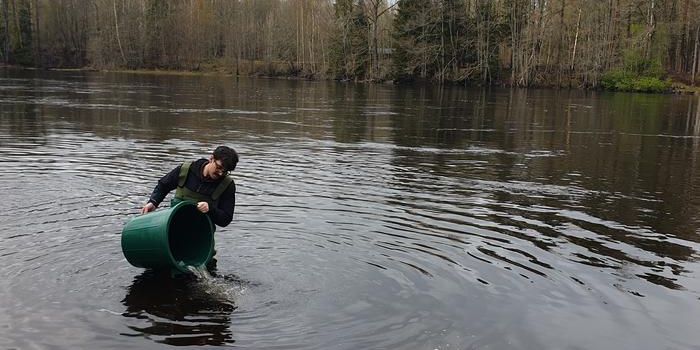Vaquitas May Be Doomed for Extinction, Unless...
The vaquita is on its way out, according to experts who’ve been studying the elusive Mexican porpoise in the Gulf of California.
There are only about 30 of the creatures remaining in the wild, a number estimated to have declined 50% from the previous year, and can be blamed on mankind’s fishing habits. Not only are they illegally caught on purpose, but sometimes they’re caught as bycatch from legal fishing.
Image Credit: Paula Olson/NOAA
Most of the time, the bycatch scenario occurs when people are out illegally fishing Totoaba, a type of fish that is known to have valuable bladders. They’re often traded in Asia for their believed medicinal properties, but the Mexican government wasn’t really doing much to prevent this despite the bans in effect.
Unfortunately, the fishing bans that make catching Totoaba illegal are about to run out at the end of May, and this is bad news for vaquita because it means they’ll start getting caught as byproduct again.
With so few in the wild today, the active threat could annihilate the remaining survivors as soon as mid-2018, as experts from the World Wildlife Fund (WWF) contend.
"You are in a situation with a critically low number of vaquita and a limited window to protect them," said WWF’s Chris Gee. "We want the gillnet ban enforced and in place permanently, without that we are very skeptical of the situation. It's a difficult situation. Extinction is imminent is nothing is done."
Related: WWF reports first increase in tiger numbers in the last decade
Mexico is actively trying integrate both the United States and China into the efforts to help save the species while the WWF works as a mediator and a motivator.
Since China is a major source of the Totoaba bladder trading, putting more limitations on its sale may deter some of the illegal fishing. Moreover, the United States is considering its own options since it shares the Gulf of California with Mexico.
Making the ban on gillnets permanent and properly enforcing it could help significantly in the fight to save the creature.
One potential idea in the meantime is to round up a number of the wild vaquita from their natural habitat so they can be relocated to a safer region where the fishing problem isn’t as prevalent. Such measures have the potential to backfire, but given our desperation to save the animals from what looks like an imminent extinction, it may be the only way we can help.
For now, you can help by signing this petition to urge Mexico's president to take more measures to save the vaquita before it's too late.
Source: WWF via The Independent









